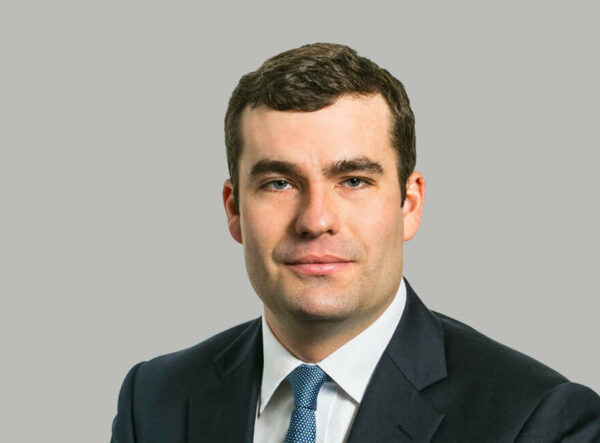Trial judge appointed special examiner to hear the evidence of a sanctioned Russian litigant and his witness in Dubai (Gorbachev v Guriev)

Dispute Resolution analysis: HHJ Pelling, the trial judge in a piece of commercial litigation in England has approved an order by which he was appointed a special examiner to hear the evidence of sanctioned Russian Defendant and a witness on his behalf, his son in Dubai. The witnesses could not give evidence in England and Wales due to a travel ban imposed by the sanctions Regulations. This decision contrasts with a recent decision in the SKAT Litigation.
Gorbachev v Guriev [2024] EWHC 247 (Comm)
What are the practical implications of this case?
This is an important decision in relation to what may become a growing feature on High Court litigation, namely applications for the trial judge to be appointed a special examiner to hear the evidence of persons overseas who are either unable to travel to Court themselves to give evidence or might face significant consequences should they do so. The practical impact of the case is best illustrated as a comparator with another recent decision of Andrew Baker J in the SKAT Litigation. Those decisions identify that a Court has two primary options when faced with a key witness who cannot travel to the jurisdiction to give evidence at trial or would face significant consequences if they attempted to do so (e.g. arrest). One option, favoured by Andrew Baker J in the SKAT Litigation was for evidence to be given by video link. The other, is for the trial judge to be appointed a special examiner and to travel overseas to hear the evidence. Nether judgment provides a comprehensive statement of the principles to be applied when deciding between the two options. However, it appears that factors such as linguistic differences and the importance of assessing the credibility of the witnesses are likely to favour the special examiner route. The judgment also confirms that there is no public policy inherent in the sanctions regime itself which guides against a trial judge being appointed as a special examiner.
What was the background?
This judgment concerns an application made jointly by Claimant and Defendant in proceedings for an order that the evidence of the Defendant and his son be taken on commission by HHJ Pelling KC at the DIFC Court in Dubai sitting as a special examiner. The Defendant and his son were unable to give evidence in England is that they are designated persons within regulation 5 of the Russia (Sanctions) (EU Exit) Regulations 2019. A written judgment was given because the parties were asked to consider whether the fact that the designation of those persons under the Regulations was the only reason why they could not give evidence in England was relevant to the Court’s powers and discretion when considering the application.
What did the court decide?
It was common ground that there were two parts to the application. First, whether the English Court has jurisdiction to make orders for the trial judge to designate himself a special examiner for the purpose of taking evidence overseas during the course of the trial. Second, whether as a matter of discretion, such an order should be made. The Court could derive no public policy principle from the sanctions Regulations themselves which precluded the making of the order sought but noted in any event that such a public policy would have to be balanced against the public policy interest in persons who are involuntary parties to litigation (i.e. Defendants) and their witnesses from being able meaningfully to participate in the proceedings. Until recently, there was little authority suggesting any doubt that a trial judge had jurisdiction to appoint him/herself a special examiner for the purpose of taking evidence from a witness overseas. However, in the recent SKAT Litigation case [2024] EWHC 19 (Comm), Andrew Baker J refused to grant the order sought and directed that the witnesses concerned give evidence by video link. On a careful reading of that judgment, however, the Court concluded that the finding in the SKAT Litigation case was that there was jurisdiction but on the facts of the case itself, the Judge declined to exercise it. It was noted in this case that the choice between the appointment of the trial judge as a special examiner and the taking of evidence by video link represents a choice between two sub-optimal solutions to a problem. The specific facts of this application distinguished it from the SKAT Litigation and the Court concluded that it was appropriate to make the order appointing the Judge as a special examiner. The Court noted in particular the language difficulties faced by the Russian witnesses and the fact that this was not a case involving significant documentary records. Accordingly, the impression given by seeing the witness in person was likely to be of particular importance to the outcome of this case. The Court gave consequential directions for how the examination was to take place.
Case details
- Court: Business and Property Courts, Commercial Court (KBD)
- Judge: HHJ Pelling KC (sitting as a High Court Judge)
- Date of judgment: 31 January 2024
Article by Phillip Patterson – first published by LexisNexis
Disclaimer
This content is provided free of charge for information purposes only. It does not constitute legal advice and should not be relied on as such. No responsibility for the accuracy and/or correctness of the information and commentary set out in the article, or for any consequences of relying on it, is assumed or accepted by any member of Chambers or by Chambers as a whole.
Contact
Please note that we do not give legal advice on individual cases which may relate to this content other than by way of formal instruction of a member of Gatehouse Chambers. However, if you have any other queries about this content please contact:


